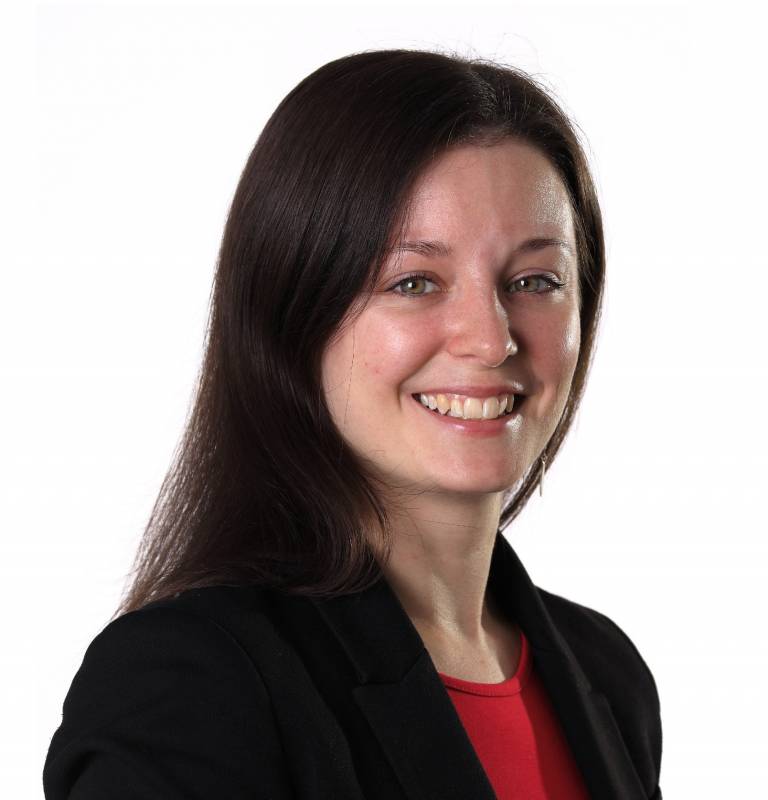UCL History welcomes Dr Amber Gartrell, who joins us as a Teaching Fellow (Ancient Rome)
22 August 2020
UCL History is delighted to welcome Dr Amber Gartrell to the department, where she joins us as a Teaching Fellow in Ancient Roman History. We chatted with Amber about her research interests and what she is most looking forward to about joining UCL History!

Hi Amber – welcome to the department! Can you tell us a little about yourself?
Hello, I’m delighted to be joining the Department of History at UCL! I’m moving to UCL from the University of Oxford, where I’ve been a Stipendiary Lecturer in Ancient History for the past five years. I’ve taught a range of Roman history papers stretching from the third century BC down to second century AD. I arrived in Oxford in 2011 to begin my doctorate in Ancient History, which I completed in 2015. Before that, I undertook my MA and BA degrees at the University of Warwick.
What does your research focus on?
My research focuses on the history of Rome, stretching from the mid-Republican period into the early empire. In particular, I explore questions about Roman religion, its development and interactions with other facets of ancient life. These include the transforming political system, influential individuals, the impact of significant historical events, as well as wider cultural and societal changes. My work explores how and why these aspects all interacted and impacted each other, especially considering how these changed over time.
My first book, developed from my doctoral thesis, explored the cult of the Dioscuri through this lens. These twin gods, called Castor and Pollux, came to Rome by the early fifth century BC when they appeared to aid the Roman army in a pivotal battle which ensured the continuation of the new Republic. Over the next few centuries, they accrued many responsibilities, including further epiphanies to aid Rome, protecting horsemen, sailors and boxers, and eventually becoming parallels for pairs of potential imperial heirs.
The current research project I am working on expands upon these ideas, examining the ideas of ‘patron gods’ and the roles, responsibilities and relationships that the Roman gods were thought to possess with humans. When we say that Apollo was the ‘patron god’ of the sun and prophecy, poetry, music and medicine, as well as people who practiced these arts, how should we understand these relationships to have been created and interacted? Who could claim such a connection with the god and why would they seek to do so? My work thus explores how these divine responsibilities were established, developed and used, and what benefits they were thought to have for each party. I’m particularly interested in questioning how different groups interacted with their gods – can we trace differences between people of varied ages, genders, statuses and backgrounds?
That sounds interesting! Which courses will you be teaching on this year, and how will they link with your research?
I will be teaching three courses this year, the first is a survey module exploring the Roman Republic, the second is a thematic module examining the idea of Roman democracy, and finally an MA module considering the role of propaganda and ideology during the Roman Republic. All of these fit well into my own period of research and also provide opportunities for the use of different kinds of evidence, a key interest of mine in teaching. How, for example, might the pictures we get of ancient life vary depending on the type of evidence and its audience? Literary texts often present a different viewpoint of events than graffiti, coins or archaeological remains do. They also speak to varying prominences given to social groups: literary evidence is often biased towards the perspective of the male elite, but we will also seek to uncover the experience of the lower classes, women and slaves.
What are you most looking forward to about starting at UCL History?
I’m very much looking forward to meeting UCL History students and colleagues in person when that becomes possible once more. I’m also keen to teach students who have a broad range of historical knowledge and seeing how they are able to link their understanding of different places and periods together. I’m sure that this will lead to many interesting debates and discussions in seminars!
We have lots of new students joining us in September, and many returning for their second and third years. What advice would you give to these young historians?
I think one of the most valuable abilities for historians to cultivate is to critically analyse your sources of evidence. Consider who is writing or creating this source, when they were doing so, who their audience was, were they even alive when the events they are informing us about occurred, what biases they might have…? The questions are numerous and we may not have all the answers to them, but they are still important to explore. Julius Caesar, for example, would likely have been presented in one way by an elite, male, contemporary historian who supported his enemy Pompey, when compared to an account given by one of the loyal soldiers who fought under his command and was enriched by it, and again to the report of a second century AD Greek biographer. Which one of these accounts is more reliable? Why?
 Close
Close

